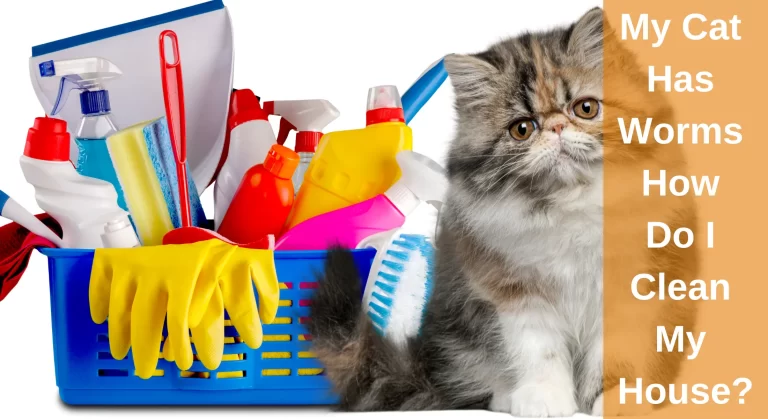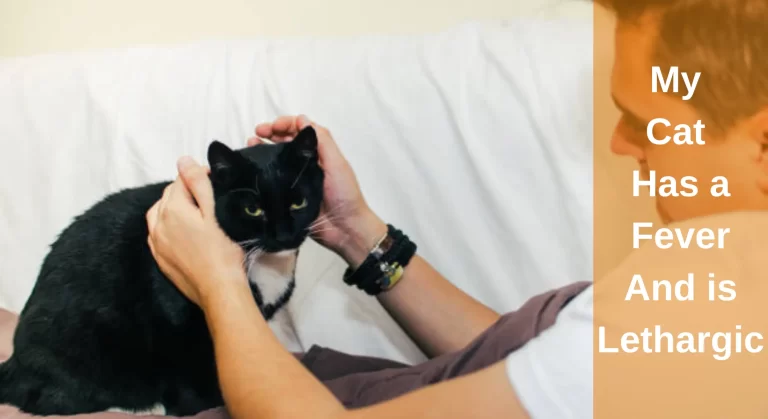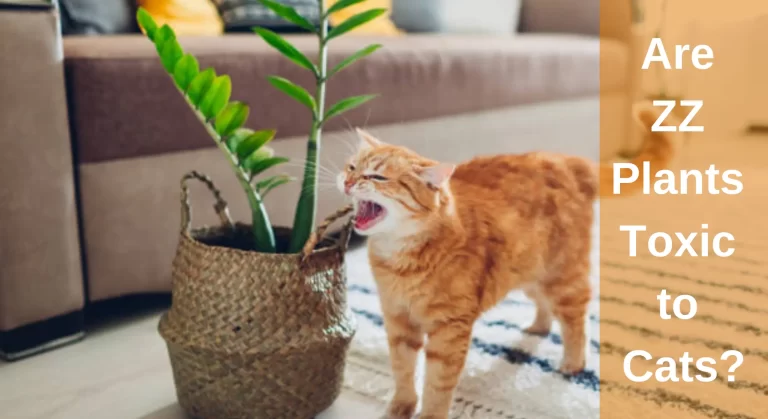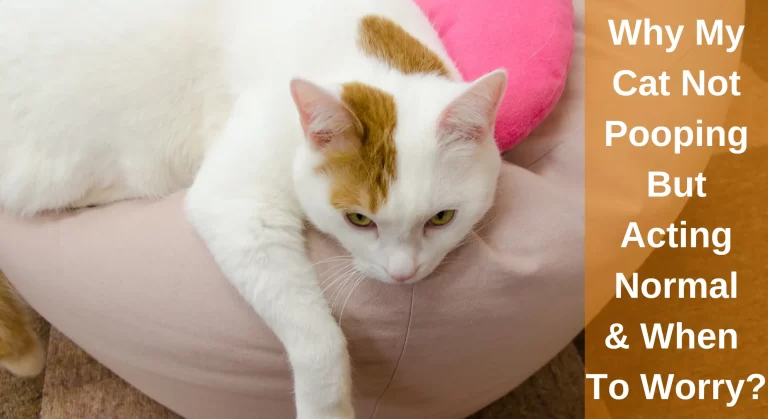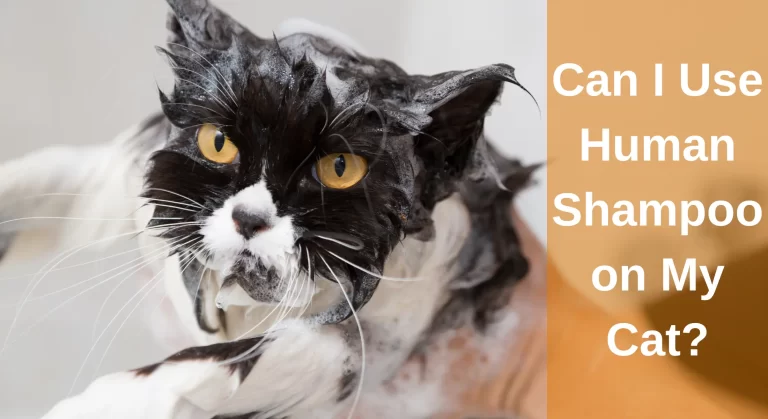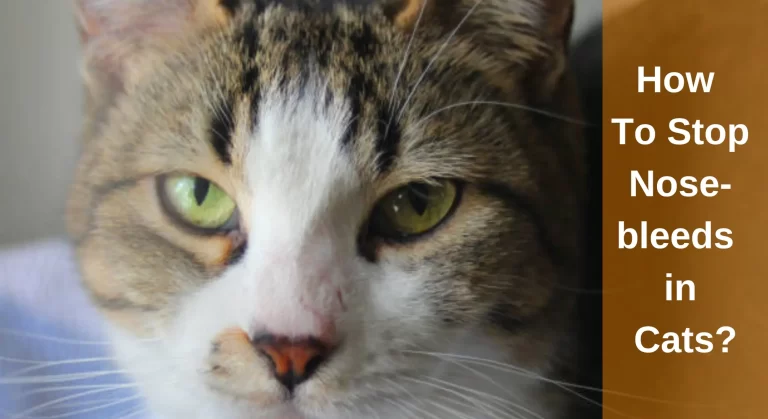My Cat Ate A Quarter: What to Do Now [Answered]
Cats are innately inquisitive animals; therefore, they frequently love sniffing and licking new objects. Also, you may have seen your cat running behind a piggy bang, but what will happen if he accidentally swallows a quarter in excitement? Does swallowing a coin harms your cat?
My Cat Ate A Quarter: If your cat swallows a quarter it becomes lodged in your cat’s intestinal system or creates a blockage. Cats can’t munch metal; thus, the quarter will be gulped down completely and may also cause choking risks and heavy metal poisoning. It is strongly advised that you should contact your veterinarian straight immediately to find out what can you help your cat in this problematic scenario.
The most essential thing to understand is that your cat can be fine after eating silly things such as a quarter. In this article, we’ll address this issue and let you know about the dangers of swallowing a quarter, how your cat will react after swallowing it, and how you can help them to get rid of it.
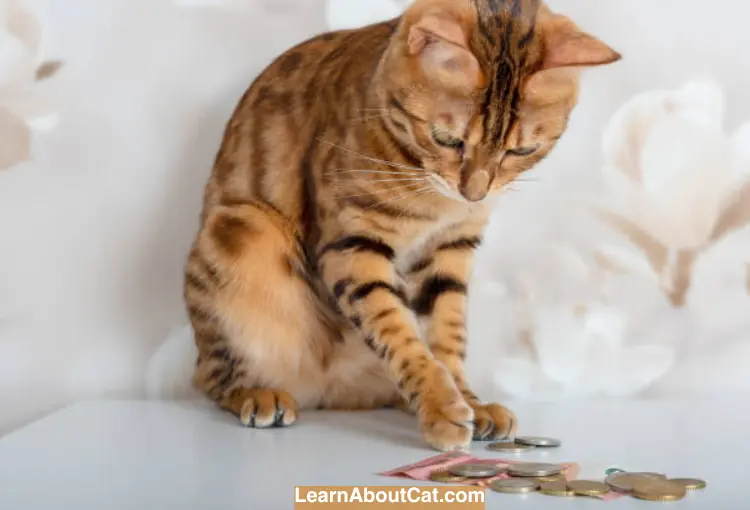
What to Do If Your Cat Ate A Quarter or Coin?
Observation and Monitoring: You must keep a close eye on your cat’s behavior feeding, and watch for any changes in appetite, energy levels, or litter box habits. If the quarter passes through the digestive system naturally without any issues, your cat may not require further intervention. However, it’s essential to stay vigilant during this time.
Prompt Veterinary Assistance: Regardless of whether your cat shows immediate signs of distress, consulting a veterinarian is crucial in situations like these, as they can provide expert guidance and ensure the best possible care for your cat. Describe the incident in detail, including the time of ingestion, and follow their instructions accordingly. They might advise you to bring your cat to the clinic for a thorough examination.
X-Rays and Diagnostics: To assess the exact location of the quarter and determine if any complications have arisen, your veterinarian may recommend X-rays or other diagnostic procedures. This will help them make an informed decision regarding the appropriate treatment plan. Some veterinarians will suggest ways to get your cat to use the restroom so that it can relieve itself properly.
To find out if your cat is having any additional health problems as a result of ingesting a quarter, you could be advised to take stool and blood specimens. Although the formation of quarters doesn’t inherently make them hazardous for cats, however, excessive ingestion of some of the minerals, including copper may seriously harm your cat.
Treatment Options: The treatment approach will depend on the severity of the situation and your cat’s overall health. Your veterinarian could advise having the quarter removed by surgical methods if it is present in a risky location causing an intestinal blockage or is giving your cat a lot of discomfort.
Check Out: My Cat Ate a Dryer Sheet: What to Do Now
Signs and Symptoms to Watch For
It’s important to be vigilant and observe your cat for any signs of distress or discomfort if you suspect they have swallowed a quarter. Some common symptoms to watch for include:
- Repeated attempts to vomit
- Loss of appetite
- Lethargy or unusual behavior
- Abdominal pain or bloating
- Difficulty breathing
- Coughing or gagging
Also, Check Out: Cat Ate Oxygen Absorber: The Dangers of Iron Oxygen Absorbers for Cats
Potential Risks and Concerns
Ingesting a quarter can pose various risks to your cat’s health. Understanding these risks will help you grasp the severity of the situation and act accordingly.
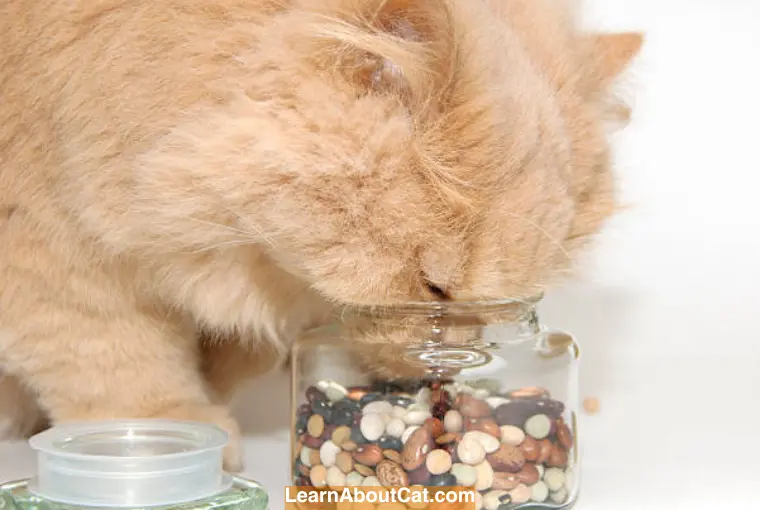
Choking Hazard
The size and shape of a quarter can potentially cause choking, leading to airway obstruction. This is especially true if the coin gets lodged in the throat or windpipe. Prompt action is crucial to prevent any life-threatening complications.
Intestinal Blockage
The digestive system of a cat is designed to process certain materials, but foreign objects like a quarter are not part of their diet. If the quarter passes through the esophagus into the stomach and continues into the intestines, it may cause an obstruction. This can lead to severe pain, vomiting, constipation, and a loss of appetite.
Heavy Metal Poisoning
Quarters, like many coins, contain trace amounts of heavy metals such as nickel or copper. Ingesting a quarter can result in heavy metal poisoning, causing symptoms like lethargy, weakness, gastrointestinal upset, and even organ damage. Prompt intervention is vital to prevent complications associated with heavy metal toxicity.
Find Out: My Cat Ate a Feather: What Happens When a Cat Devours a Feather
Is Swallowing A Quarter Dangerous for My Cat?
It could be risky for your cat to consume something which can’t be digested by their gastrointestinal tract or isn’t a meal. We all understand that cats are cunning and may discover methods to consume objects things they shouldn’t, therefore precaution is crucial in case of cats ingesting odd objects like quarters.
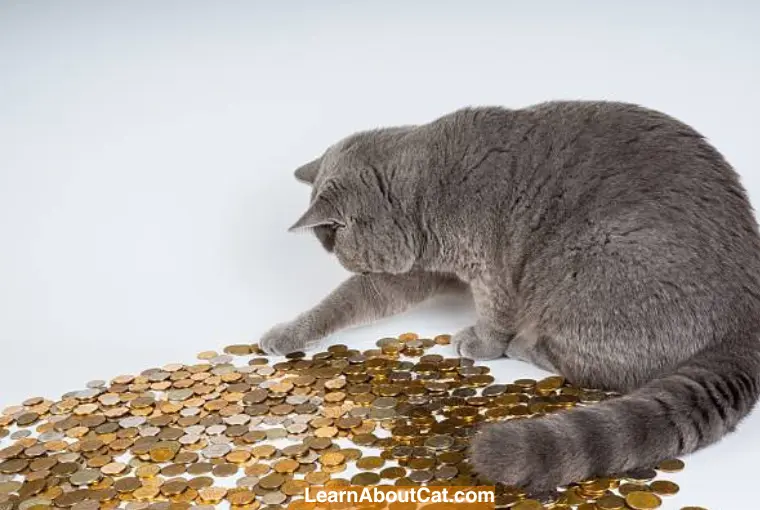
A cat’s gastrointestinal tract will occasionally grasp the quarter for a short period. Since some cats don’t exhibit any indications or symptoms that would suggest something is lodged in their intestinal system, it may be quite challenging to determine what is happening inside your cats’ intestinal system.
Also Read: Cat Ate a Birth Control Pill What Should I Do?
What Can Happen If My Cat Ate A Quarter or Penny?
Cats are unlikely to be drawn to chewing common coins like quarters. The majority of cats might just ignore it or treat it as a toy if they did see one. It’s possible that your cat will only defecate a quarter within the following 12-24 hours when they succeed in eating one.
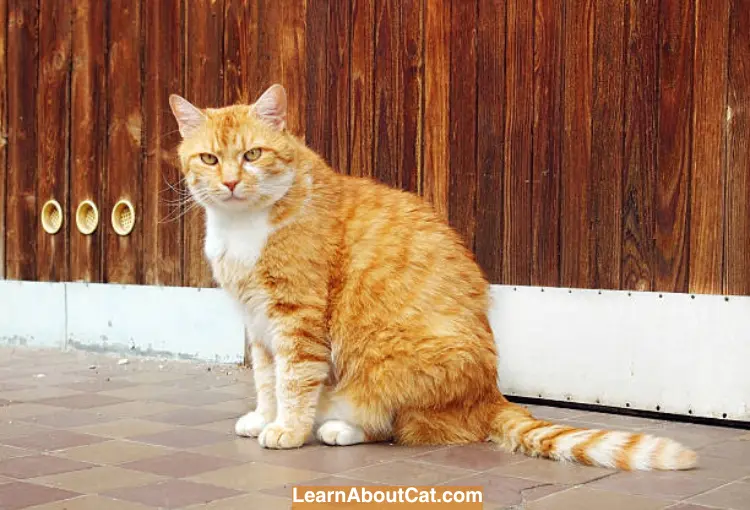
You must keep an eye on their cat litter behavior in the following days, even though it’s not particularly enjoyable. It’s possible that your cat will experience pain while releasing the quarter; as a result, you could see them screaming. If they’ve managed to only get the quarter, you’ll probably be able to find it in their trash as well.
There are methods to promote normal passage when your cat is unable to do it on its own. To prevent your cat from getting dehydrated or worsening its illness or suffering, you must perform this while cooperating with a veterinarian. Without medical help, it’s also possible that your cat will suffer deadly situations and their gastrointestinal tract becomes obstructed.
Interesting Reading: My Cat Ate Plastic Wrapper: What Should I Do [Answered]
How Cats Act When Something Is Stuck in Their System?
As previously noted, when you’ve found your cat consuming a quarter, keeping an eye on them and their behavior will be crucial. Not just it is important to watch their litter box, but you also have to notice their routines or behavior alter. Your cat might show any of the behavioral modifications and signs listed below if ingesting a quarter causes a blockage:
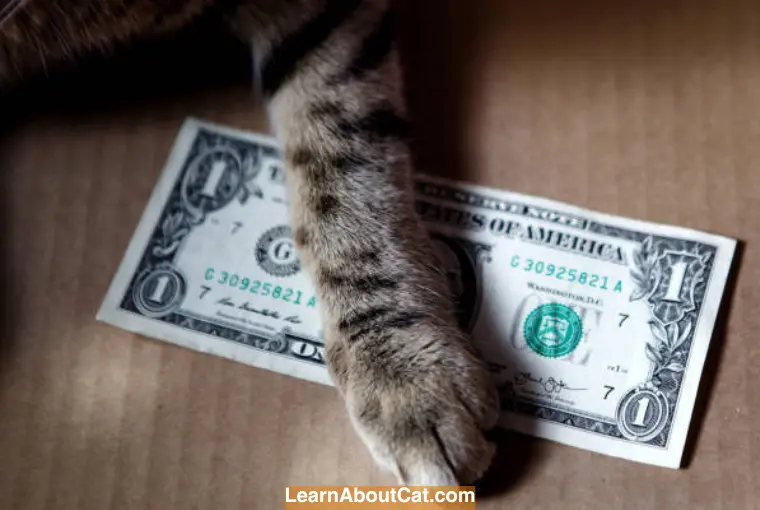
- Reduced hunger
- Nausea and dysentery
- His stomach is bloated and sore
- If you stroke your cat’s belly, it hurts.
- Having trouble using the toilet
- Severe reactions when lifted or touched
- Yellow gums and skin
- Reduces red blood cells
- High pulse rate
- Dark-colored urine
Frequently Asked Questions
Is it common for cats to swallow coins?
Shiny objects draw cats’ attention, particularly if they create noise. Every type of coin, such as a quarter, might have been included in this. Cats occasionally like to smell and play with coins, but eating coins is not something they frequently do. Coins have a bad scent and aren’t very delicious. But as we all know, cats sometimes go against the norm and attempt to ingest coins.
Moreover, ingesting smaller coins, like pennies, could be significantly riskier than doing so with quarters. Zinc is typically absent from quarters, but it is abundant in coins like pennies, which can be hazardous to cats’ health.
Why does my cat love coins?
Cats are frequently drawn toward shiny things like coins. Cats are also naturally curious creatures who enjoy exploring their surroundings and interacting with various objects. Coins are a fun playing item for cats since they are tiny and simple to toss around. Cats may also fascinate by the sound that coins create when they strike one another or other things, which enhances their interest in coins.
What happens if a cat eats metal?
An obstruction in the intestinal system, which may be fatal, can result from a cat eating metal, like a coin. The metallic object may become stuck in the gut, colon, or esophagus and cause a blockage based on its shape and dimensions. Nausea, a decrease in hunger, pain in the abdomen, and constipation are just a few of the symptoms that can result from a blockage. In extreme circumstances, it may result in organ damage, electrolyte disturbances, and exhaustion.
In addition, some metals, like zinc, can be hazardous to cats if consumed in significant amounts. Zinc poisoning can cause anemia, liver or renal dysfunction, anorexia, nausea, diarrhea, and drowsiness.
How long can a cat live with intestinal blockage?
The likelihood that a cat with a bowel obstruction will survive relies on several variables, including the length and intensity of the obstruction, its position, and the cat’s physical well-being. The cat could recover rapidly and have a high survival rate if the obstruction is only minor and is addressed soon.
Severe obstruction can result in catastrophic problems like thirst, electrolyte disturbances, infection, and organ damage if it isn’t untreated. In these circumstances, the likelihood of problems and the period of lifespan decreases the more the obstruction lasts.
Can a blocked intestine fix itself?
Sometimes, an obstructed intestine can unblock itself, particularly if the obstruction was brought on by emergency conditions like constipation or a coin. Unfortunately, the obstruction is not likely to clear up by itself and may need veterinarian assistance. However, if the blockage is caused by small items it will easily pass by the cat’s intestinal system.
Conclusion
Whenever your cat consumes things which is inedible like a quarter or any other foreign object, it will be a disturbing situation for them, prompt action and veterinary assistance are crucial in ensuring their well-being. The ingestion of foreign objects can lead to various health risks for your feline friend.
Remember to observe your cat for any signs of distress, take immediate steps if ingestion is suspected, and consult your veterinarian for professional advice.
There are so many techniques we may try to keep our cats from attempting to eat items they shouldn’t. To avoid panicking and overlooking your cat’s medical requirements, it’s critical to have a dependable veterinarian on your side.
Related Posts:
- My Cat Ate Insulation: What To Do Now
- My Cat Ate a Whole Bag of Treats: What Should I Do? [Answered]
- My Cat Ate My Garlic Bread: What Should I Do [Answered]?
- My Cat Ate Chocolate Muffin Wrapper:
- Can Cats Eat Gum? A Look at the Risks and Dangers
- Can Cats Eat String Cheese?
- Why Do Cats Like Hair Ties? [Explained]
Who is Isabella?
My name is Isabella, and I am a dedicated and knowledgeable cat enthusiast. With years of experience caring for cats and a deep love for felines, I made a mission to help other cat lovers navigate the challenges of cat ownership.

